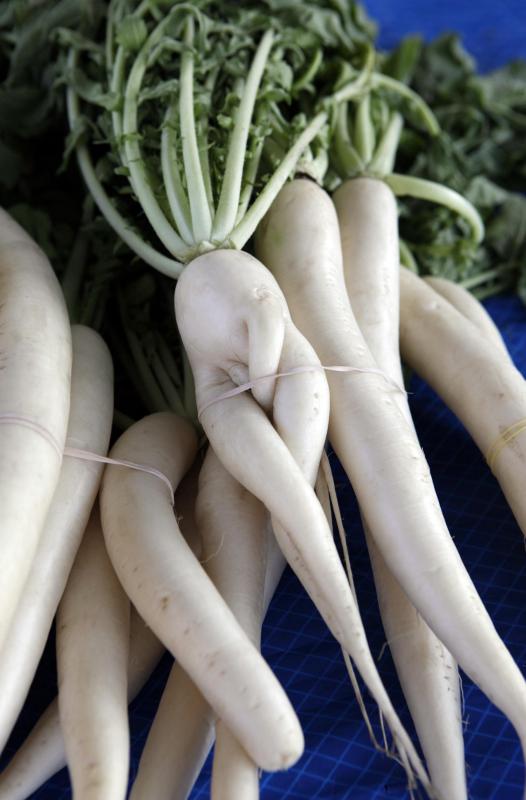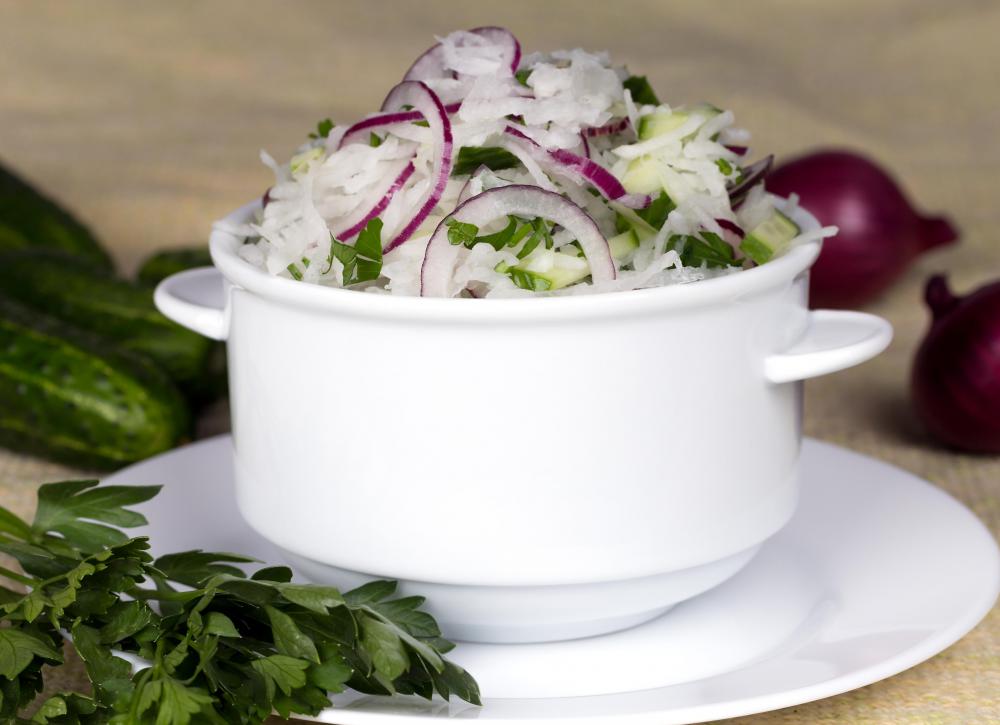At WiseGEEK, we're committed to delivering accurate, trustworthy information. Our expert-authored content is rigorously fact-checked and sourced from credible authorities. Discover how we uphold the highest standards in providing you with reliable knowledge.
What Are the Benefits of Radish?
Radishes and the larger daikons of the mustard family known as Brassicaceae are some of the most popular produce items in Eastern markets, due not only to the vegetable's sharp taste and crunchy texture but also its time-honored effects on health. The most obvious benefits of radish consumption are the many vital nutrients it provides, from potassium, silicon and iron to vitamins B, C and E. Many herbalists and whole-foods experts also tout this vegetable's time-honored use to ease digestive inflammation, fight bacteria, loosen congestion, and potentially even help to cure cancer.
The daikon, known as mooli in the Indian practice of Ayurvedic medicine, has long been respected as a homeopathic cure for several specific disorders. It might be part of the recommendations when a patient exhibits a cough, ear infection or hemorrhoids, which is known as piles. The radish is also regularly suggested as an astringent or anti-inflammatory agent, to use either internally or on the skin. Some credit the benefits of radish to its ability to relax the bile ducts, which can aid in detoxification, passing kidney or gall stones, and even constipation.

Herbalists of many traditions often tout the benefits of radish for these aforementioned conditions and a handful more. Many swear by its action to strengthen immunity and help the body fight conditions like diabetes and cancer. Others play up its high concentration of the digestive enzyme diastase, which helps the body digest starchy food that could end up as adipose fat.

Though the larger varieties of radish are typically used in Eastern markets, most of the same alleged health benefits of radish are also available with the smaller varieties more common in the West. The plant can be eaten from top to bottom, at any time of its development. Many cultures prize the seeds and sprouts for salads or snacks — in pickled or lightly toasted and salted varieties. Though the root bulb is the most common object of culinary interest, many also use the bright green leaves as lettuce for salads or sauteed until soft in oil and garlic.

The benefits of radish are not confined to culinary or medicinal practices, either. Agricultural scientists regularly recommend the planting of radish species during crop rotation for a range of reasons. This plant cuts down on weeds and keeps soil aerated, while depositing vital nitrogen into soil that retains its moisture and guards against erosion.
AS FEATURED ON:
AS FEATURED ON:













Discuss this Article
Post your comments